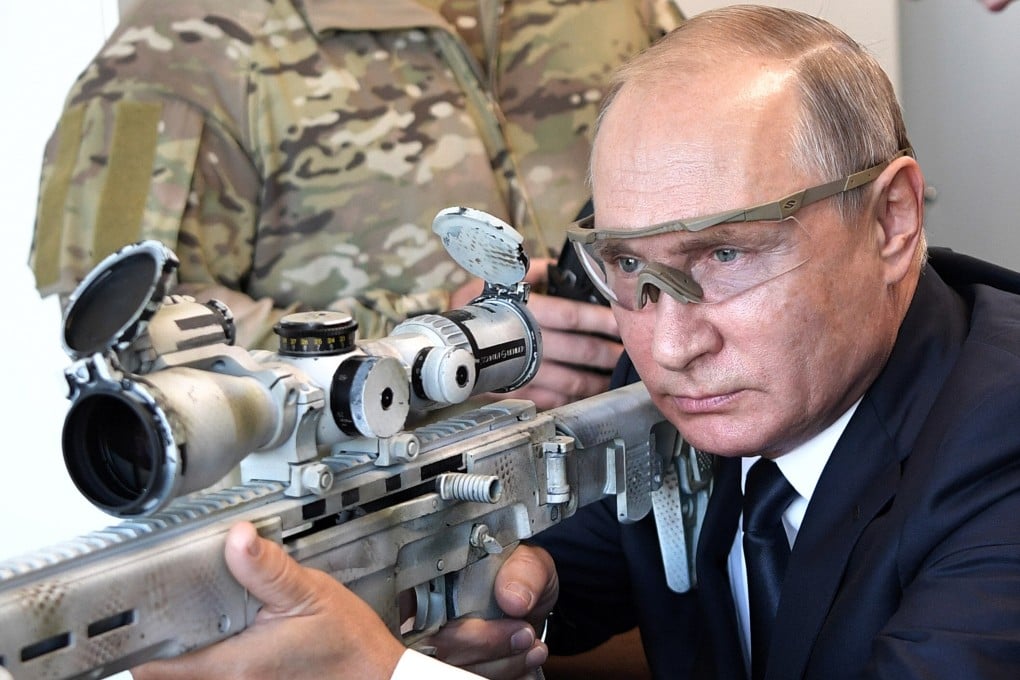Lunar | How Putin’s toxic masculinity has driven his violent policies against Russians and, now, Ukrainians
- Whether posing on horseback or with a gun, Putin has long portrayed an image of hypermasculinity that has helped legitimise his repressive policies against women and minority groups at home
- Now, with the invasion of Ukraine, the strongman narrative is being played out on a global stage

Describing Vladimir Putin as “manly” is a euphemism. Throughout his political career, Russia’s leader has relied on hyper-masculine performances to build a macho image for his supporters. Posing shirtless while riding horses, petting tigers, firing big guns and doing martial arts for the cameras have become an inherent part of his brand.
His alpha male image is so exaggerated that many tend to not take it seriously. He has been Photoshopped riding bears, eagles and sharks, and even carrying a baby Donald Trump. Yet making Putin a central figure of today’s influential “meme culture” unintentionally contributed to his soft power.
That’s why this kind of macho display should have been taken more seriously from the beginning. Pop culture has glamorised Putin’s toxic masculinity, legitimising the violence he has inflicted on Russians for the past two decades, and is now using against Ukraine.
According to the Oxford English Dictionary, toxic masculinity is defined as “a set of attitudes and ways of behaving stereotypically associated with or expected of men, regarded as having a negative impact on men and on society as a whole”.
Masculine traits that are considered “toxic” generally include: using or threatening the use of violence, acting aggressively, suppressing emotions, trying to appear tough and using power over women, “weaker” men and marginalised groups.
Putin’s policies have always reflected his idea of manhood. Since 2000, he has led Russia with a firm, conservative and patriarchal hand.

